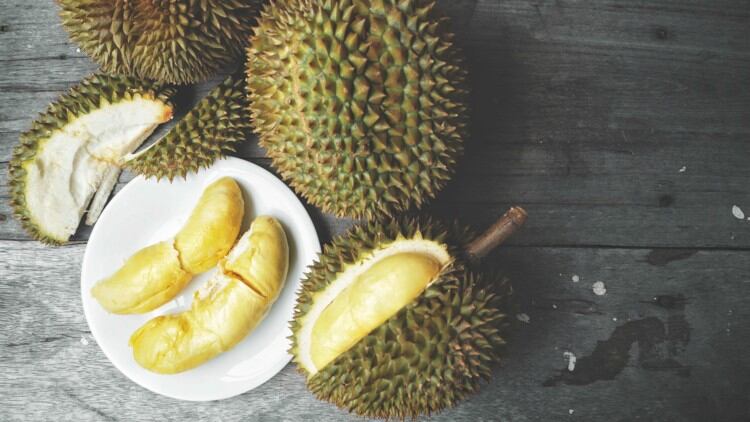The Chinese government implemented the GMP certification as a requirement for all durian imports originating from Thailand in 2018, after it was revealed that China had issued over 1,700 notices to the latter for the discovery of pesticides in durians and relevant products, according to BenarNews.
This requires a certificate of quality from the Thai Department of Agriculture, in addition to various documents to ascertain chemical use, soil quality control, water use, and more, which ‘not many traders’ in the region are likely to have.
According to Thai PBS, only some 20% of durian exporters in Southern Thailand and some 50% of those in North East Thailand have GMP certification, and if the number of exporters willing to purchase durian decreases because they cannot export to China, durian prices could drop to below THB100 (US$3.24) per kilogramme.
“[Durian] today is the main economic crop for Southern Thailand, [ensuring an income] for farmers and [bringing in large revenue to] the country,” said Office of Agricultural Development Research Region 7, Surat Thani Province Director Wirat Thambamrung.
“[Now] growers and [companies] need to remember to [develop and ascertain] the standard of their durians [in order to prevent pressures from] the destination market [in China].”
Thambamrung added that investigations were ongoing into the exact number of exporters in the southern region with GMP certification, to ensure that the remaining durians are expediently exported before harvest season at the end of July floods the market with produce.
In a press release, the DOA determined the number of durian packaging companies in the country with GMP certification to be 141, but no confirmed numbers for exporters have been released as of yet.
“Recent reports claiming that durians produced in Thailand are treated with harmful substances during processing have been greatly detrimental to [our] reputation and image. The DOA hereby guarantees that Thailand constantly develops our durian production techniques for export-quality durians, to produce high-quality durians year-round,” said the DOA.
“The Thai government also has high quality and safety management measures in place for exported durian, regardless of whether it is to be exported to China, Taiwan, Hong Kong, Indonesia or any other market.
“Not only must the exported durians meet Good Agricultural Practice (GAP) requirements, these must also be packaged in packaging companies that have GMP certification.”
According to the United Nations Commodity Trade Statistics Database (Comtrade), in 2018 China was the largest importer of Thailand durians with 202 million kilogrammes valued at over US$481mn.
Continued dealings with China
All in all, China still looks set to continue its relationship with Thailand over durian in the near future.
Earlier this month, Chinese company Manguwang Foods announced the launch of its THB700mn (US$22.7mn) durian processing factory in Southern Thailand, set up with the aim of producing freeze-dried durian to be exported to China.
E-commerce giants such as Alibaba and JD have also respectively put a good deal of focus on the fruit, with the bulk of their suppliers hailing from Thailand.
JD entered into an agreement with Queen Frozen Fruit, Thailand’s main frozen durian distributor, to buy a third of Thailand’s frozen durians in preparation for its Super Durian Day last year, whereas Alibaba’s Tmall sold 80,000 Monthong durians, some 200,000 kg in total, within a minute of its durian sale launch, according to Alibaba founder Jack Ma.




